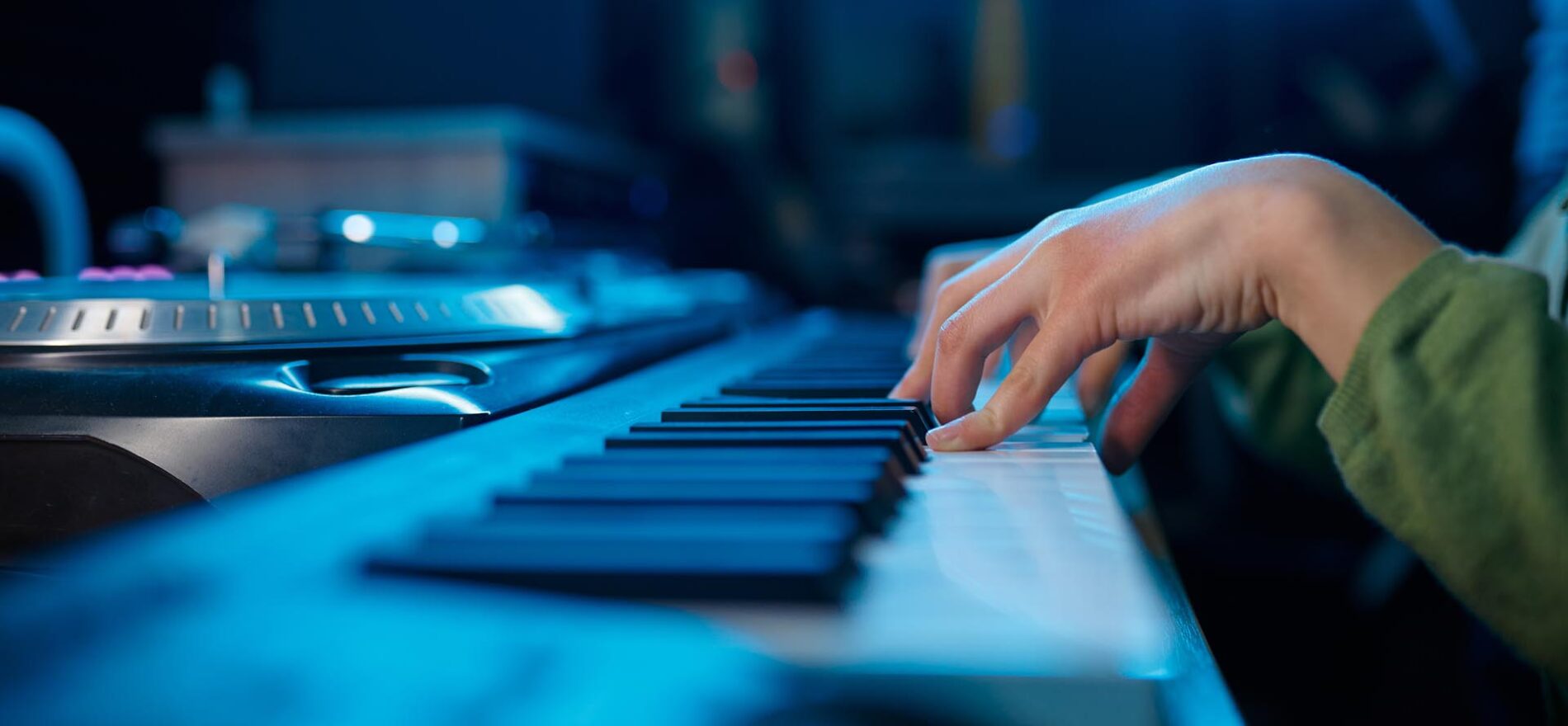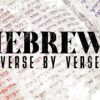I’ve served the LORD in the role of worship pastor since 2001. That role isn’t one expressly spelled out in the New Testament. In fact, apart from Paul’s mentions of psalms, hymns, and spiritual songs in Ephesians 5:19 and Colossians 3:16, from my recollection there are only two other recorded instances of songs being sung. They sang a song together after Jesus instituted the LORD’s Supper, and Paul and Silas were singing songs in a jail cell. [There are songs sung in heaven in Revelation, but I’m keeping this discussion tied to the earthly experience of the early church and the NT letters’ teachings.]
The Old Testament provides MUCH more insight into the role of music with God’s people. And the Old Testament comes closer to portraying the idea of men and women whom the LORD used to lead music. 1 Samuel 10:5-6 is one such place.
After that you shall come to Gibeath-elohim, where there is a garrison of the Philistines. And there, as soon as you come to the city, you will meet a group of prophets coming down from the high place with harp, tambourine, flute, and lyre before them, prophesying. Then the Spirit of the LORD will rush upon you, and you will prophesy with them and be turned into another man.
This is part of King Saul’s story. When Samuel anointed him king, this was part of a prophecy made to Saul so that He would know the LORD had chosen him to be king. And it came to pass just like Samuel prophesied. Take note. The prophets coming down from the high place had harps, tambourines, flutes, and lyres, and they were prophesying as they played their instruments. When Saul met them, he too began prophesying with these musician prophets.
Another vignette we can turn to is 1 Chronicles 25:1-8
David and the chiefs of the service also set apart for the service the sons of Asaph, and of Heman, and of Jeduthun, who prophesied with lyres, with harps, and with cymbals… The number of them along with their brothers, who were trained in singing to the LORD, all who were skillful, was 288. And they cast lots for their duties, small and great, teacher and pupil alike.
The passage is a little lengthy, so I only included verses 1 and 7-8. But within these verses, it is said that they prophesied under the direction of the king, and they prophesied with the lyre in thanksgiving and praise to the LORD. There were men and women appointed here whose role was to provide music for the LORD’s house and to prophesy as they played.
But my personal favorites are 1 Samuel 16:23 and 2 Kings 3:15-16. Let’s look at 1 Samuel first.
And whenever the harmful spirit from God was upon Saul, David took the lyre and played it with his hand. So Saul was refreshed and was well, and the harmful spirit departed from him.
Notice the effect of the musician (not the music): when David played, the harmful spirit departed. There’s a concrete link between Spirit-filled musicians playing music to the LORD, and the departure of evil spirits. Now look at 2 Kings 3:15-16
And Elisha said, “As the LORD of hosts lives, before whom I stand, were it not that I have regard for Jehoshaphat the king of Judah, I would neither look at you nor see you. But now bring me a musician.” And when the musician played, the hand of the LORD came upon him.
It’s a pretty big deal that Elisha, God’s prophet, the prophet who came after Elijah and did twice as many miracles, needed a musician to play so that he could hear clearly from the LORD. Again, the LORD used the musician to get Elisha’s heart and mind in the right place to prophesy.
Here’s one more, 2 Samuel 22:1.
And David spoke to the LORD the words of this song on the day when the LORD delivered him from the hand of all his enemies, and from the hand of Saul.
What follows after this verse is a prophetic word that David sang to the LORD. Read it again: David prophesied as he sang a song. And of course, you can point to the entire book of Psalms as evidence that music and prophesy have an intimate relationship. Psalms is an entire book of music that was prophetically inspired and written for use in Israel’s worship. That doesn’t mean there weren’t other songs written, but these psalms were recognized by the nation to be given by God for their worship of Him.
So that’s the foundation for what I’m about to write. The spiritual impact of music should not be understated – although I think we frequently do understate it. My experience as a worship pastor has taught me that music is frequently undervalued and thought to play second place to the preaching. I want to be fair because not everyone who puts the music in second place necessarily dislikes it. Within that thought process, there are people who love music and love worshiping through music, but they see preaching as the main event. Also, within that thought process are people who are simply indifferent about the music and just want to get to the preaching as quickly as possible.
And to be clear, there are plenty of people who I feel have a very informed understanding of the role of music. But, I do believe they are a minority.
I submit that they are equally important because the Word assigns a great deal of significance to both activities in our gatherings. So, based on what we see in the Old Testament, here is what I believe we can say about the spiritual impact of music.
First, the musician must be a person filled with the Holy Spirit.
Why did David’s music drive away Saul’s harmful spirit? It wasn’t primarily because David chose the right songs, although that may have played a role. The main reason is that David was a Spirit-filled man. By this time, David has been anointed by Samuel and since that day, he was a Holy Spirit-filled man.
Then Samuel took the horn of oil and anointed him in the midst of his brothers. And the Spirit of the LORD rushed upon David from that day forward. – 1 Sameul 16:13
Worship offered by Spirit-filled musicians can drive out evil spirits. It will agitate demons and cause them to leave. Churches should seek men and women who walk in the Spirit for their singers and musicians.
Second, music creates an atmosphere conducive for the LORD to work.
Elisha’s need for a musician gives us a precedent to say the LORD uses music to change the atmosphere of a space for His purposes. In my ministries, I’ve always been careful to avoid the accusation of manipulation. If you use the right music, the right lighting, and the right words you can easily manipulate people into an experience. I didn’t need anyone to teach me that, it’s just something that my inner cynic has always been on guard against.
However, God’s Word reveals that even the prophet Elisha needed music to reset his heart and mind toward the LORD so that he could prophesy. This, along with the larger current of the OT regarding this issue, tells me that the LORD has no problem with music employed to make His presence more easily felt and His voice more easily heard. So, the church should pursue Spirit-filled musicians and singers who are led by the Spirit to play music that will change the environment in the room in a way that the LORD’s presence is felt and His voice is heard more clearly.
Third, music enables prophecy.
I provided multiple passages that blend music and prophecy. David’s appointed musicians are also prophesying as they play music. The prophets that Saul encountered were prophesying as they played music. There is no denying that the LORD has created an intimate connection with music and prophecy. We’ve already seen how music assisted Elisha in his prophesying. We should expect the LORD to either use musicians to prophesy or use the music of the musicians to enable others to prophesy.
I’m very aware of the angst that the issue of prophecy stirs up with many Christians. There’s debate over the purpose of prophecy in the church, the need for prophecy in the church, and whether the church should expect the LORD to raise up prophets within the church. I’m not getting into the debate but will acknowledge that it exists. For the record, I believe the LORD still uses prophetic utterances in the church, according to 1 Corinthians 14. But the nature and purpose of that are for a different blog post. But because I embrace this, I have NO PROBLEM telling you that the LORD uses music to stir up prophetic utterances for the upbuilding, encouragement, and consolation of His church.
~~~
I could keep going, but I’m over my word limit, so let me wrap this up.
All of this got stirred up in my heart this morning while I was reading Sam Storms’ book, Understanding Spiritual Warfare. It’s a great book. But there was a section that convicted me to the core. In a moment this morning, the LORD revealed a gaping hole in my ministry. It hasn’t been intentional, but regardless, it is something that has been missing. From this day forward, as best as I can, I will plan with these matters in mind. I’ll be asking the LORD to help me plan something that will make demons flee. Something that will make the presence and voice of the LORD super clear. Something that will enable God’s people to speak prophetically. Hear me, I’ve always wanted to plan something Christ-honoring and Christ-centered, but I’m adding these things to the planning mix. You might say that Christ-centered will automatically hit those other things. Maybe, but specificity never hurts. My desire is to do all that I can to shepherd an environment where the Spirit of God can change the people of God and give new life to sinners.














Brother....this is great.